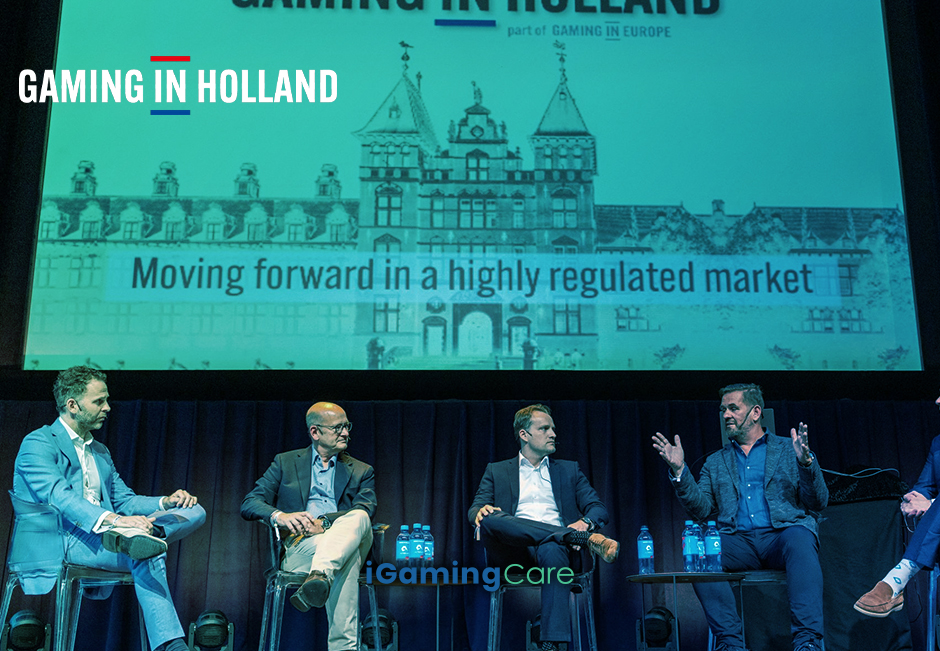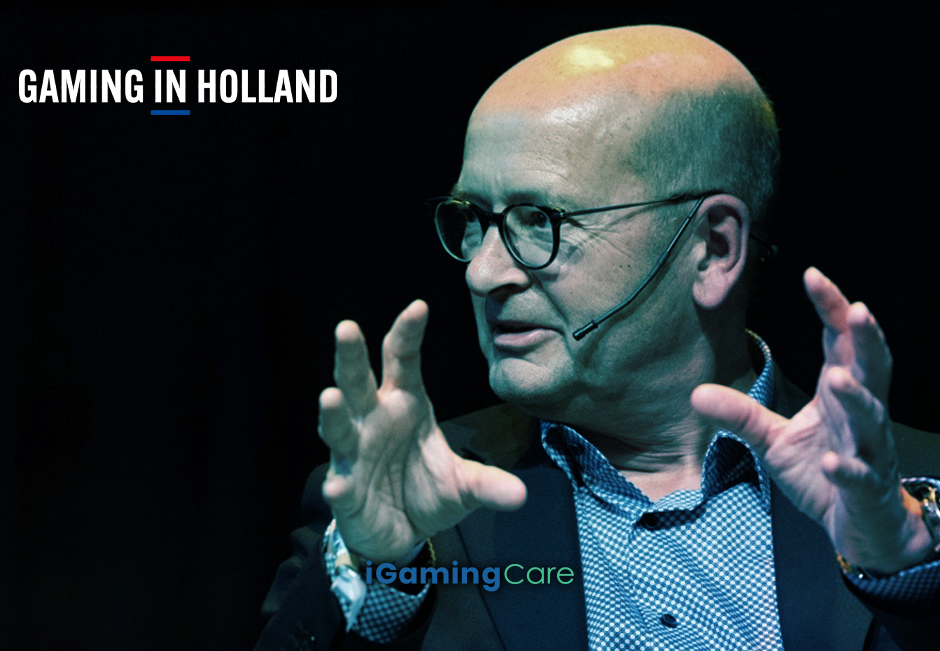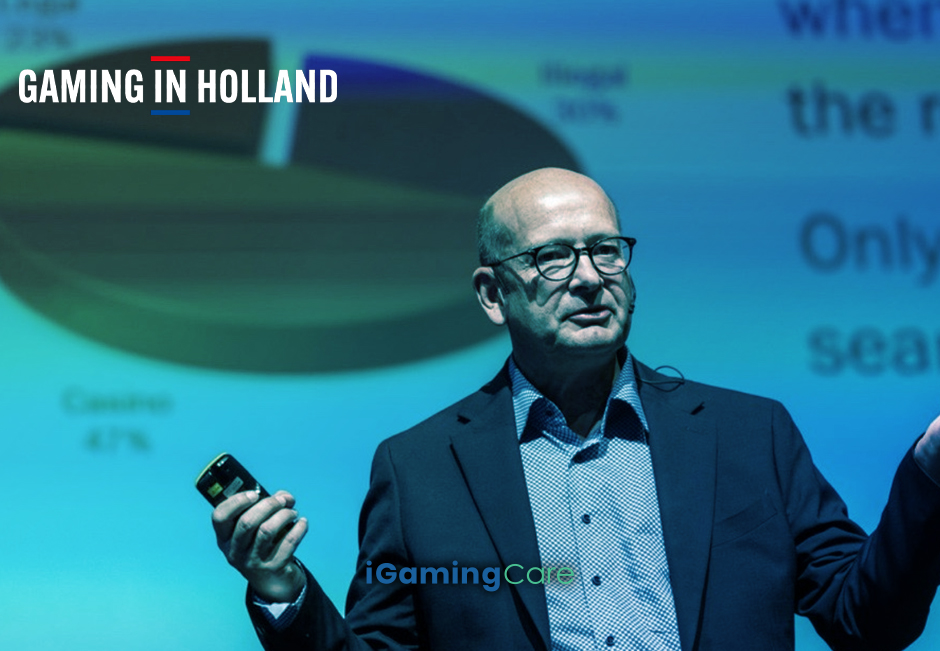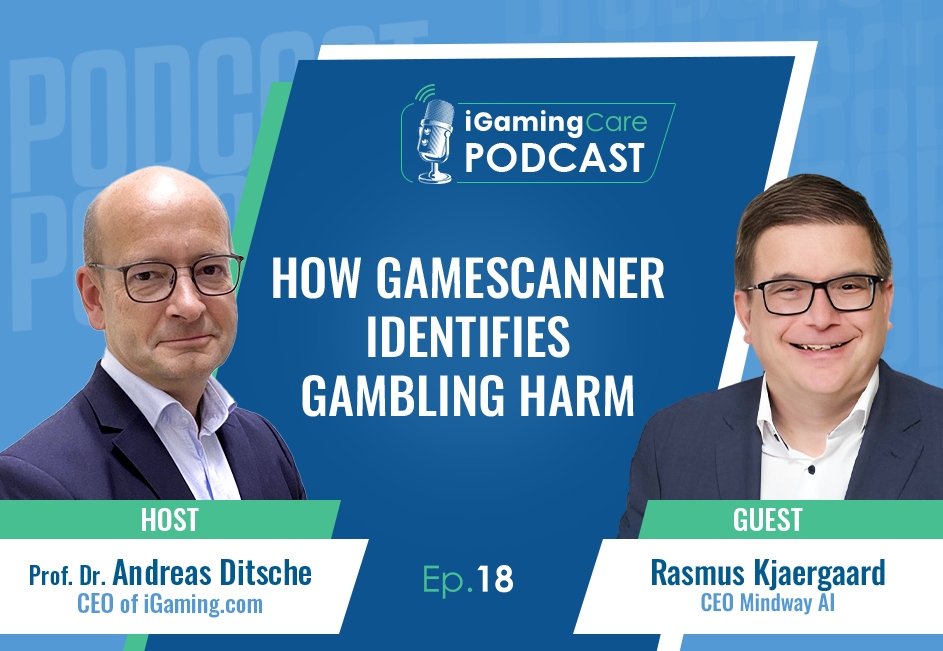
Taming the Evil: Prof. Dr. Andreas Ditsche Speaks at GIH Conference

At the recent Gaming in Holland (GIH) Conference, Prof. Dr. Andreas Ditsche discussed the dangers of the black market and overregulation, and why regulators need to work with operators to curb it.
He talked about the myths surrounding gambling and how proper regulation is better than outright bans. Read on for more details on the presentation and Dr. Ditsche’s thoughts on the industry.
Gaming in Holland Conference 2025: A Change in the Market
GIH is the biggest B2B platform for the Dutch gambling market, hosting an annual conference for those involved in the industry.
This year’s topic was how to curb the illegal market and the government’s plan to change the Remote Gambling Act. It also touched upon AI and how it can be used effectively in the market.

Prof. Dr. Andreas Ditsche was one of the speakers at the conference, discussing the ethics around the gambling industry.
Our CEO is also a professor of entrepreneurship and innovation at Kutaisi International University in Georgia. With this background, he brings expertise in both the gambling industry and marketing. He is dedicated to promoting responsible gambling, which is one of the topics of his new podcast, along with regulation.
How One Man’s Story Illustrates the Dangers of Overregulation
Prof. Ditsche began his speech with the case of Thomas Melchior. In 2019, he was arrested for fraud and other crimes while trying to pay off an €800,000 debt to gambling companies.
After seeing a gambling advert at a football match, he began betting. Unfortunately, sportsbooks did not ban him when he was losing money. Now, Melchior advocates for banning gambling advertisements and promoting responsible gambling.
“Well-meaning regulation often tries to protect players through strict rules, taxes, limits. But intentions don’t protect people. Visibility does.”
Prof. Dr. Andreas Ditsche
Prof. Ditsche explained that losing this much money in a regulated market in such a short time is impossible.
Germany has a €1,000 monthly deposit limit at regulated operators, so it would take over 60 years to lose the amount of money Thomas has. Instead of protecting him, the strict rules led him to illegal markets, where he played unprotected.
The Real Threat to Players
Dr. Ditsche believes removing gambling from the public eye will not solve the issue of the black market. Overregulation, such as higher taxes, leads to lower RTPs, which drives players to the black market.
These illegal sites don’t follow the rules, so they will continue to advertise and entice players who migrate to these sites.
“Millions are gambling without any oversight, any safety net, or even basic protection. That breaks my heart – and it should worry all of us.”
Prof. Dr. Andreas Ditsche
Any channelization efforts will be fruitless if players are unaware of legal options. The black market can’t be controlled through bans, especially today when players can use VPNs to bypass any restrictions.
To tame gambling, the industry and regulators need to provide an experience that’s better than the black market.
Germany’s Dropping Tax Revenue
Prof. Ditsche furthered his point by using the German market as an example. Despite its strict regulation, including a €1 limit on slot spins and banning jackpot slots, its channelization rate is below 50%. That is due to the high turnover tax, which has caused a drop in revenue as casinos cannot keep up.

Taxation itself can have a positive impact on GDP and channelization, as it allows the government to fund prevention programs.
However, in Germany’s case, the high taxation has caused casinos to lower RTP rates, leading to bigger losses and more people moving towards the black market. Almost half of German players use the illegal market, with only 23% even searching for legal keywords.
Players Will Always Play
Dr. Ditsche emphasizes that you can’t stop people from playing, which he reiterates from his speech at the 5th iGaming Germany Conference.
Most people play for fun, and gambling has been around since Ancient Roman times. Whether using wooden sticks as chips or accessing offshore casinos with VPNs, players will always find a way to gamble.
“I understand the logic behind restricting gambling options to fight addiction. But if we push players out of the legal market, aren’t we making things worse?”
Prof. Dr. Andreas Ditsche
Despite this, many regulators attempt to fight addiction by banning gambling. While the logic is sound, restricting players’ options is more likely to push them toward illegal sites.
Legal casinos must be promoted, as they allow regulators to keep track of gambling activity and react if necessary. Regulated sites also have strong encryption and responsible gambling tools like helplines.
Creating a Safer Playground
There are many ways to combat the black market while also offering an enjoyable experience for players. Regulators should promote licensed sites and educate people on the available responsible gambling tools.
By setting proper advertisement guides, legal operators will gain more visibility and can warn people about the dangers of playing at illegal sites.
“I believe in an ethical path forward. One that starts with keeping players in the legal market. That’s where real player protection begins.”
Prof. Dr. Andreas Ditsche
Meanwhile, operators can use tools like personalized messaging or AI to gather data for better player protection.
They can also offer more payment methods and improve the transaction process. Online casinos can also use geo-blocking tools to guide players toward their country’s version of the site.
Conclusion
Preventing cases like Thomas Melchior won’t be achieved by banning gambling advertisements or restricting players’ access to games. Instead, regulators should work alongside operators to promote legitimate casinos.
Meanwhile, the casinos can improve their services by offering better bonuses, fair games, and streamlined payment processing. Players can only be protected if they use licensed, legal options and have the necessary tools to manage their play sessions and funds.

